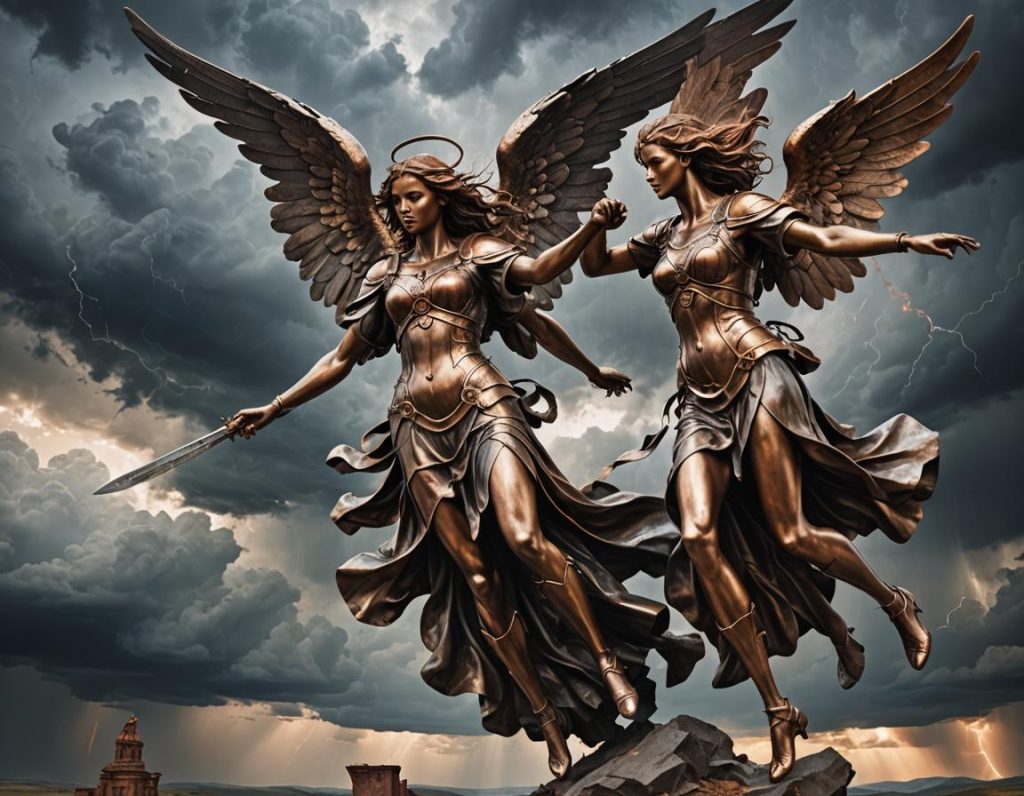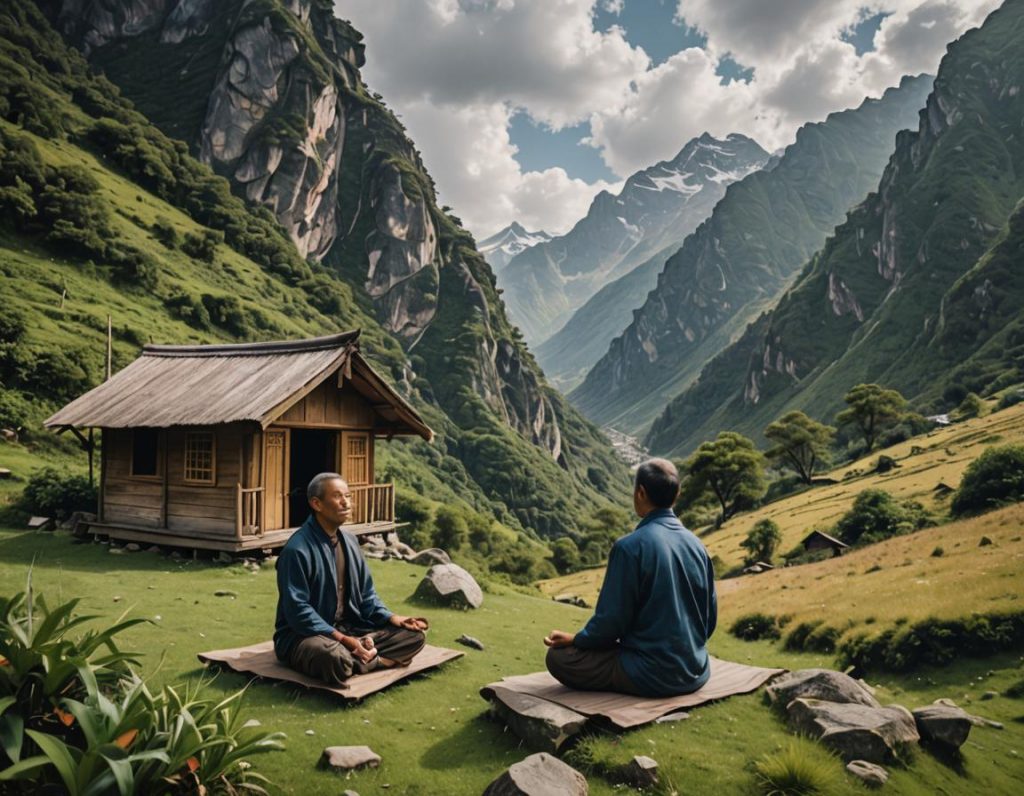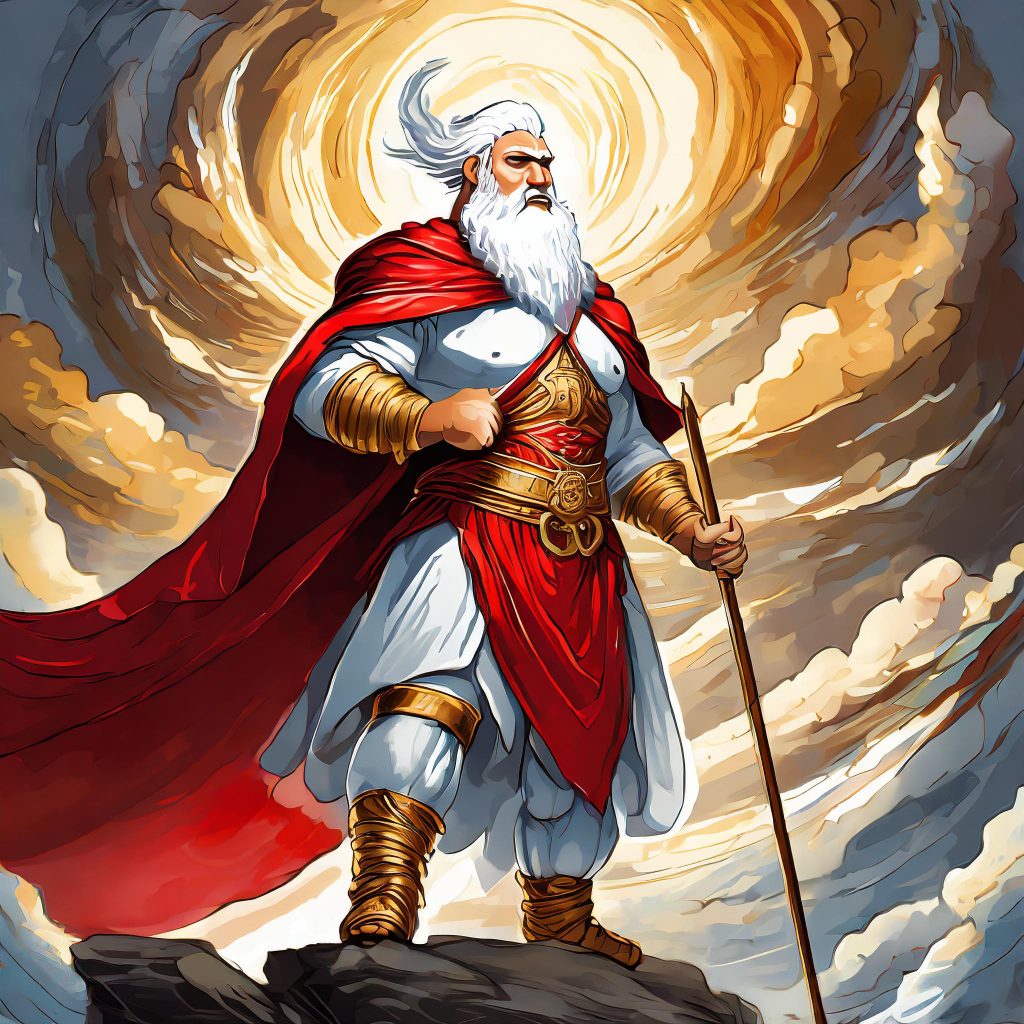
The fifth stage of ascent up the Mithraic Ladder is silver. Alchemically speaking, copper brightens as it transmutes into silver. The colourful, ruddy copper becomes the white-grey silver as a person transcends a focus on materialist concerns such as nuclear family for (slightly) more abstract concerns.
This brightening reflects a broadening, and a raising, of horizons. The characters of lead, tin, iron and copper all look downward in a sense, because they’re most worried about dangers that arise from the Earth. But the character of silver looks over them all, to the distant horizons, and the rising and setting Sun.
A person of copper works to transmute themselves into silver when they start to take an interest in the welfare of those outside their immediate family. Once a person with a small family is asked to speak or act on behalf of a larger group, such as a village or clan, they start to raise their frequency of consciousness beyond that which is found in a state of Nature. They start to become actually civilised – not merely passive, but an active bearer of the light of civilisation.
A second method of transmutation is the accumulation of knowledge. The character of silver is traditionally the one that has taken an interest in history, geography and culture. They are able to look beyond their immediate environment and understand the context into which their family has been thrust by circumstance. As such, they are able to understand individuals much better than those who cannot take such a broad view.
They can also transmute by means of a third way: voluntary celibacy. Upon reaching the apex of the realm of copper, a person might find that they no longer feel they have much left to experience sexually. Perhaps they have lived out every fantasy they ever had by this time. They might then, rather than expending sexual energy in the pursuit of more offspring, sublimate it into something higher.
The decision to sublimate sexual energy into spiritual energy is one of the most powerful decisions a person can ever make. It is the key to attaining the level of silver (and above). The sexual energy is fundamental to physical life, and therefore fundamental to fighting and violence and the non-consensual assertion of will. By sublimating that energy into something higher, a person moves beyond the beast and towards the god.

Chronologically, when a person is in the copper stage, they tend to have children who are in the lead stage, i.e. just learning to survive. Of people who die, a high proportion of them die in the first twelve years of life, owing to all the survival challenges that have to be met and overcome for the first time.
When their children pass into the realm of tin, there’s no longer such a worry that they might immediately die. When it does, a person of copper might cast their mind to wider things than just their nuclear family – such as their extended family. In doing so, their horizons broaden from the home to the community, and a change can begin, from copper to silver. Deep knowledge can be attained by those who throw themselves into the task once they no longer need to worry about their children.
The character of silver is mostly concerned with the clan. They are the sort of person who would become a clan chieftain. Thus they must engage in politics to some extent. They will inevitably find themselves called to settle disputes between other family members.
Occupationally, silver is associated with jobs where a degree of brilliance is required, such as doctor or judge. If copper if the boss of the front-facing roles such as Army captain, silver is the major, a back-facing role in an important office. The transition to silver, then, is a kind of retirement, from the physical realm and its conflicts.
Silver is a precious metal. This reflects the fact that characters of silver play a precious role in maintaining civilisation. They are concerned with “the wider collective”. As such, a large number of the people involved in government bureaucracy tend to be characters of silver (even if their leaders tend to be characters of mercury).
A character of copper might discover that, thanks to the reputation they have developed from raising their children well, they are offered a position as an official in a government somewhere. Such a promotion might occupationally reflect an inner change from copper to silver.
Socially, the person of silver is much less preoccupied with sex. The person of copper is specifically trying to create a family, and so is obsessed with sex. The person of silver, by contrast, no longer feels an imperative to have children. Hence, the prime virtue that transmutes copper to silver is chastity.
Physically, the transition from copper to silver is marked by silver (or grey) hair. It can also be marked by becoming more slender. Characters of silver are most likely to have the long, willowy bodies typical of the upper classes. If the muscle man of the realm of iron first relaxes into the teddy bear of the realm of copper, upon then entering the realm of silver he might become neither muscular nor fat, but lean and slender.

It’s necessary to note here that merely getting old doesn’t guarantee a transition to silver. The nature of the alchemy here is spiritual and not material. A person can therefore have silver hair but still be stuck at an earlier level of spiritual development. For example, if a 55-year old is still mostly concerned with looking tough, they are stuck at the level of iron. If they are still mostly concerned with partying, they are stuck at the level of tin.
Neither is it necessary to be old to develop a frequency of silver. It’s generally true that, the higher the frequency of the consciousness, the later in life it comes to full fruition. However, a character of an unusually high frequency of consciousness can manifest aspects of silver at an early age. This is often seen intellectually through an interest in art.
An archetypal moment that is emblematic of the transition from copper to silver is when a parent starts caring more about paying for their child’s college tuition than they do about keeping them alive. Guiding the child towards life, rather than away from death, becomes the focus. In a way, then, they transition from the guardian of their offspring to an advisor of them.
Another such moment is when a person starts wondering if there’s more to life than just sex and children. Once a person doesn’t want any more children, they have to start asking some deep, existential questions that are typically postponed by the imperative to win territory and breeding partners. A character stops following instincts like a lower animal, and starts asking themselves questions about the meaning of life.
The essence of the transition from copper to silver is a brightening that hints at the presence of solar energy. The character of silver plays a minor role in upholding civilisation itself. As such, their lives are heroic in a subtler way than those of copper and iron. In the transition to mercury, the character of silver becomes less subtle.
*
This is an excerpt from Viktor Hellman’s The Alchemy of Character Development, the sixth book in VJM Publishing’s Writing With Psychology series. This book will show you how to use alchemy to create deep, realistic and engaging characters for your creative fiction.
*
If you enjoyed reading this piece, buy a compilation of our best pieces from previous years!
Best VJMP Essays and Articles of 2023
Best VJMP Essays and Articles of 2022
Best VJMP Essays and Articles of 2021
Best VJMP Essays and Articles of 2020
Best VJMP Essays and Articles of 2019
Best VJMP Essays and Articles of 2018
Best VJMP Essays and Articles of 2017
*
If you would like to support our work in other ways, make a donation to our Paypal! Even better, buy any one of our books!







